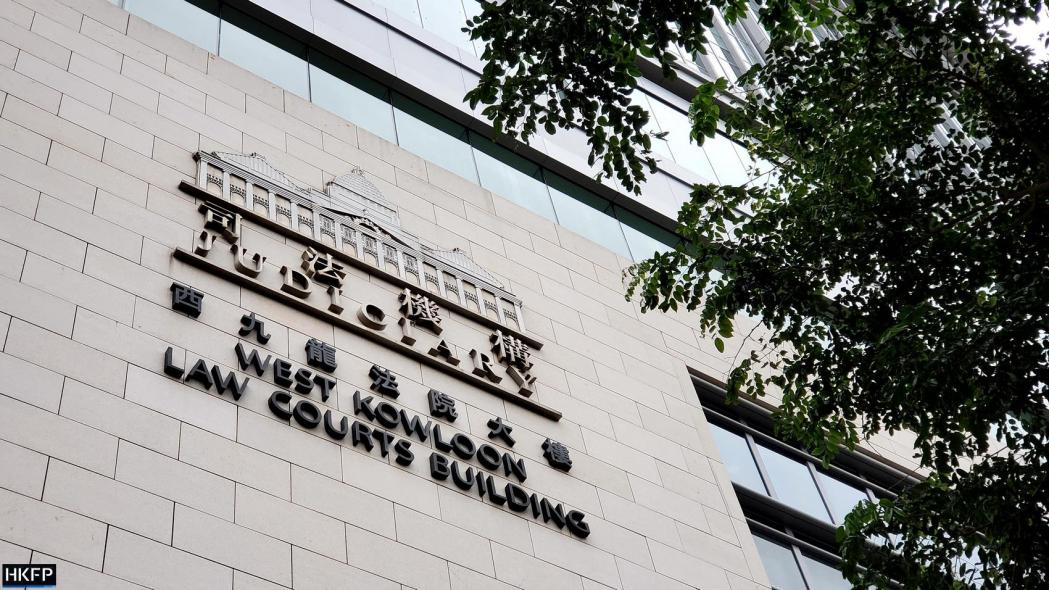Hong Kong’s courts must consider the impact on human rights if they refuse to allow challenges to the legality of national security data investigations, a barrister and former leader of Hong Kong’s Tiananmen vigil group argued.
Chow Hang-tung, former vice-chair of the Hong Kong Alliance in Support of Patriotic Democratic Movements of China, represented herself at the West Kowloon Magistrates’ Courts on Thursday in front of Principal Magistrate Peter Law.

Chow, along with two former standing committee members of the Alliance Tang Ngok-kwan and Tsui Hon-kwong, is accused of “failing to comply with [a] notice to provide information” about the organisation from the national security police.
Simon Leung and Chan To-wai, the other two defendants in the case, pleaded guilty earlier and were handed three-month jail sentences.
Before its members voted last September to disband, the Alliance organised annual candlelight vigils in Hong Kong to commemorate victims of the 1989 Tiananmen military crackdown in Beijing when hundreds, perhaps thousands, were killed.
The court on Thursday was dealing with two preliminary issues following submissions from the prosecution and from Esmond Wong, Tang’s barrister, on Wednesday.
Law, one of Hong Kong’s handpicked national security judges, was asked to rule on whether it was permissible for the defence to challenge the legality of the notice demanding information, and whether the prosecution had to prove that the subject of the notice was a foreign agent.

Schedule 5 of the implementation rule of the national security law states that the Commissioner of Police has the power to serve a notice on a foreign agent – with the approval of the security chief – asking the organisation to provide information such as its income and expenditure, as well as activities.
Impact on human rights
Chow rejected the prosecution’s argument that the legality of such a notice cannot be challenged, and that requiring police to prove that the recipient was a foreign agent would defeat the purpose of the legislation.
She said such an interpretation would mean that anyone, including those who were not foreign agents, could be convicted under the law.
“It means that someone, some organisation, who is in fact not a foreign agent, who gets served with an invalid, unlawful notice, should nevertheless be convicted for non-compliance,” said Chow.
Chow said the wording of the schedule made it clear that the legislation had the intent to “punish a [foreign] agent, not just anyone.”
The prosecution’s interpretation, if accepted, would mean that the law was “punishing a defendant for daring to challenge the authority of the police,” said Chow.

“The underlying unspoken assumption is that national security is always right, and you cannot challenge that,” she said.
Chow told the court that being a foreign agent was “not a crime” but the prosecution’s position implied that anyone with foreign links was “inherently a suspect”. This would be “wrong in law and a wrong message to send.”
“…This is a case of the national security department testing how far they can take the law into their own hands without encountering any resistance from civil society, the Department of Justice, and from the court,” said Chow.
She said that “the court must consider the impact on human rights” that followed the prosecution’s interpretation. The right to privacy, the privilege against self-incrimination, the right to silence, and freedom of assembly were in question in this case.
Based on the rule of law
Senior counsel Philip Dykes, representing Tsui, argued that the notice demanding information was issued “without any judicial scrutiny” and the rules did not provide for an appeal.

The senior counsel said there was “a strong presumption” that in general and based on the rule of law, an individual would be able to launch challenges, unless such challenges were excluded by statute.
Dykes said the prosecution must establish that the case was an exception to the presumption.
Prosecution’s response
The prosecution, led by Acting Deputy Director of Public Prosecutions (Special Duties) Anthony Chau, said that Section 4 of Schedule 5, which regulated the service of the notice demanding information, made no reference to foreign agents.
Chau said the section “only refers to a person or organisation in general,” refuting the defence’s assertion that the wording of the schedule made it such that the notice could only be served on a foreign agent.
The prosecutor said the lack of a statutory appeal mechanism did not mean that the defence was allowed to challenge the notice in court.
The magistrate said he needed around three weeks to reach a decision, and adjourned his ruling till August 2. He said the trial would resume on August 23, giving all parties time to adjust their case following the ruling on the preliminary issues.
Support HKFP | Policies & Ethics | Error/typo? | Contact Us | Newsletter | Transparency & Annual Report | Apps
Help safeguard press freedom & keep HKFP free for all readers by supporting our team
























